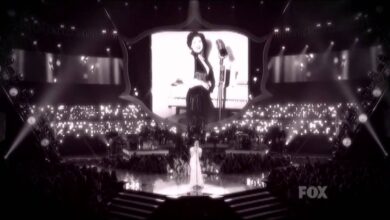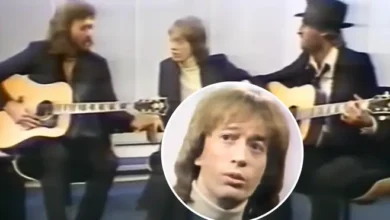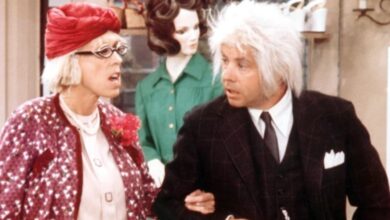The Enduring Legacy of Dolly Parton’s “Jolene”
The Song That Defined a Genre
Few songs in country music history carry the universal recognition and emotional weight of Dolly Parton’s “Jolene.” Released in 1973 as the title track of her album, the song remains one of the most covered and celebrated compositions of all time. Its simplicity, raw emotion, and haunting melody have ensured its place in music history. From its origins in a real-life moment to its viral resurgence on social media, “Jolene” has captivated generations of listeners.
A Story Rooted in Reality
The origins of “Jolene” are as fascinating as the song itself. Dolly Parton has openly shared that the song was inspired by an actual bank teller who once showed an interest in her husband, Carl Dean. Rather than writing a bitter or vengeful song, Parton crafted a ballad of vulnerability and admiration, making Jolene a larger-than-life figure rather than a villain. This storytelling approach set the song apart from traditional breakup or jealousy songs, making it resonate across different cultures and musical styles.
Lyrical Genius: A Plea Wrapped in Heartache
At the heart of “Jolene” lies a lyrical structure that blends desperation with poetic beauty. The repeated plea, “Jolene, Jolene, Jolene, Jolene, I’m begging of you, please don’t take my man,” is both haunting and hypnotic. Unlike many songs of infidelity, the narrator does not blame or attack but instead acknowledges the rival’s beauty and power. This nuanced approach allows listeners to feel the pain and vulnerability of the singer, making the song deeply personal yet universally relatable.
A Timeless Melody and Composition
Musically, “Jolene” is built on a simple yet unforgettable chord progression. The song’s minor-key tonality, combined with an uptempo rhythm, creates a tension that mirrors the narrator’s anxious plea. The urgency in Parton’s vocals, with her trademark vibrato and high-pitched delivery, adds an element of desperation that brings the lyrics to life. The stripped-down arrangement ensures that the song remains timeless, allowing for countless reinterpretations in different genres.
Unforgettable Musical Moment
When “Jolene” was released as a single in 1973, it became an instant hit, reaching No. 1 on the Billboard Country Charts. Over the decades, it has transcended country music, being covered by artists from various genres, including rock, pop, and even heavy metal. The song’s impact has been so profound that Rolling Stone ranked it among the greatest songs of all time, further cementing its status as a cultural and musical masterpiece.
Revived Moments in Music History
One of the key reasons “Jolene” has remained relevant is its ability to be reinvented across generations. Notable covers from artists such as The White Stripes, Miley Cyrus, and Pentatonix have introduced the song to new audiences. Each rendition brings a unique flavor, proving the song’s versatility and emotional depth. The White Stripes’ stripped-down garage rock version, in particular, added a raw, bluesy edge that resonated with rock fans, further expanding the song’s reach.
Viral Resurgence in the Digital Age
In the era of social media, “Jolene” has experienced a remarkable revival. On TikTok, thousands of users have created videos lip-syncing or interpreting the song, often adding their own humorous or emotional twists. Dolly Parton herself has engaged with this resurgence, playfully interacting with fans who continue to breathe new life into her classic. Additionally, slowed-down and remixed versions of the song have gone viral, proving its adaptability in the digital age.
Iconic Presence in Film and Television
Beyond music charts, “Jolene” has made its mark in pop culture through its appearances in film and television. The song has been featured in shows such as “The Handmaid’s Tale,” “Grace and Frankie,” and “Gilmore Girls,” often used to emphasize themes of longing, desire, and female rivalry. Additionally, Parton’s Netflix series “Dolly Parton’s Heartstrings” dedicated an entire episode to the story behind the song, bringing even more depth to its already legendary narrative.
Empowerment and Feminist Interpretations
In recent years, “Jolene” has been reinterpreted through a feminist lens. While the original song paints Jolene as an almost mythical beauty, modern audiences have reshaped the narrative, questioning why the plea is directed at the woman rather than the unfaithful man. This shift in perspective has led to conversations about agency, relationships, and the portrayal of women in music, proving that “Jolene” is still relevant in contemporary discussions.
The Song’s Influence on Modern Artists
The influence of “Jolene” can be seen in the work of countless contemporary musicians. Artists such as Taylor Swift, Kacey Musgraves, and Miranda Lambert have cited Dolly Parton as a major influence, with “Jolene” often being referenced as a masterclass in storytelling and emotional depth. The song’s ability to balance vulnerability with strength has inspired a new generation of singer-songwriters who aim to create music with lasting emotional impact.
Cultural References and Tributes
Beyond direct covers, “Jolene” has inspired countless tributes and references in popular culture. The song’s name has become shorthand for a type of romantic rivalry, with many TV shows and movies making subtle nods to its lyrics. Additionally, the phrase “Don’t take my man, Jolene” has been widely used in internet memes and pop culture discussions, further embedding the song into the cultural lexicon.
Live Performances That Captivated Audiences
One of the most remarkable aspects of “Jolene” is how it continues to captivate audiences during live performances. Dolly Parton’s 2014 Glastonbury performance of the song became an unforgettable moment, as thousands of fans—many of whom were much younger than the song itself—sang along with passion and enthusiasm. This performance proved that “Jolene” is more than just a song; it’s an anthem that transcends generations.
Why “Jolene” Will Never Fade
The beauty of “Jolene” lies in its simplicity and emotional truth. While trends in music come and go, the universal themes of longing, admiration, and heartache ensure that this song will always find new audiences. Whether through classic radio play, viral social media moments, or fresh reinterpretations, “Jolene” is destined to live on as one of the most beloved songs in history.
Your Turn: What Does “Jolene” Mean to You?
“Jolene” has been an emotional companion for listeners across different eras, backgrounds, and experiences. Whether you first heard it on the radio, in a viral video, or through a modern cover, its impact is undeniable. How has this song resonated with you? Share your favorite memories, covers, or personal interpretations in the comments!



